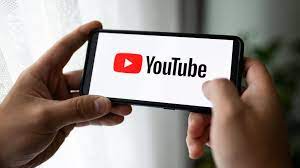For the purpose of assisting people in the United Kingdom to avoid harmful medical misinformation on the internet, YouTube has introduced a verification mechanism for medical experts living in the UK.
In the year 2021, users located in the United Kingdom accounted for more than two billion video views of clips on health issues.
In an effort to combat the spread of inaccurate information, YouTube has introduced a new verification badge that will be affixed to the profiles of medical professionals and organisations, such as licenced physicians, registered nurses, psychologists, and other health-related professionals and companies.
Read also: Stakeholders tasks YouTube TV on flawed $600 advertising
Remark from YouTube executive
Dr Vishaal Virani, head of UK health for YouTube, stated that the transition to verified health videos for users in the United Kingdom was essential due to the large number of people in the United Kingdom who receive healthcare information through the video-sharing platform.
Virani told the BBC, “Whether we like it or not, whether we want it or not, whether the health industry is pushing for it or not, people are accessing health information online. We need to do as good a job as possible to bring rigour to the content that they are subsequently consuming when they start their care journey online.”
The implementation
In June, the verification system started accepting applications from healthcare practitioners living in the UK who already held a valid medical licence.
Accounts that submitted their films for the verification process are now beginning to see a mark of authenticity on YouTube next to their channel names.
This would help to make it as simple as possible for people to determine whether the material they are viewing came from a trained medical expert.
When submitting their accounts, potential health makers are subjected to a stringent and multi-step verification process that is carried out in collaboration with the Academy of Medical Royal Colleges and the National Health Service.
Creators in the health industry have their older videos reviewed as well; however, they do not receive verification when it comes to whether or not their older movies have contained any medically inaccurate content.
YouTube to pay AI-generated music artists and rights holders
About YouTube
YouTube is a website that allows users to upload, share, and view videos online. Its headquarters are located in San Bruno, California, in the United States. On February 14, 2005, Steve Chen, Chad Hurley, and Jawed Karim were the ones who first made it available to users all around the world.
It is the second most frequented website in the world, behind only Google Search, and it is owned by Google. More than 2.5 billion people log in to YouTube on a monthly basis, and those users watch more than one billion hours of video content every single day. As of the month of May 2019, the rate at which videos were being uploaded to platforms like YouTube was greater than 500 hours of content each minute.
YouTube has evolved beyond its basic website to include mobile apps, network television, and the ability to link with other platforms ever since it was purchased by Google. Music videos, video clips, news, short films, feature films, songs, documentaries, movie trailers, teasers, live streams, vlogs, and many more types of video content can be found in YouTube’s various video categories.
The vast majority of video on YouTube is produced by individual users, including joint efforts between YouTubers and commercial advertisers. Established media conglomerates such as Disney, Paramount, NBCUniversal, and Warner Bros. Discovery have all established and grown their own corporate YouTube channels in order to sell their products to a wider audience.
The societal influence that YouTube has had is unprecedented, as seen by its power to shape popular culture and internet trends and its role in the creation of celebrities worth several millions of dollars.
In spite of its expansion and success, it has been subjected to widespread criticism for allegedly aiding in the dissemination of false information and the sharing of content that is protected by intellectual property rights; routinely violating the privacy of its users; facilitating censorship; putting the health and safety of children in jeopardy; and for the inconsistent or incorrect implementation of platform guidelines.
















